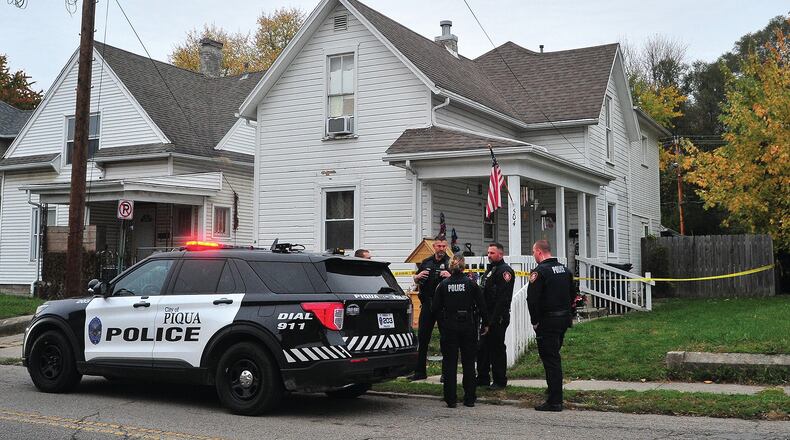“This money has allowed us to continue operations when our revenues have been constrained; pay for extraordinary costs of additional cleaning and sanitation; and fund projects to promote social distancing, especially in the downtown,” said Patrick Titterington, Troy’s service and safety director.
Among specific uses were reimbursing the city for contributions to the local Small Business Relief Grant Program and The Troy Foundation Emergency Relief Fund; buying remote work technology; and offsetting police, fire and administration salary costs.
Projects to improve social distancing included expansion of the city driving range tee box area; additional benches, trash cans and picnic tables downtown; outdoor dining greenhouse; floating tents and supplies for use on the river; and equipment at Hobart Arena.
The dining greenhouse popped up recently on the Public Square in front of Bakehouse Breads.
The $1,300 structure is intended to allow small social distancing options for restaurants to offer options to carryout, deliver or inbuilding dining, Titterington said.
Before the greenhouse, the city had placed picnic tables downtown, which were popular in warmer weather.
“Overall, the governor’s various edicts regarding COVID has had an enormous and widespread economic impact on our small businesses, especially downtown. We have been striving every way possible to entice people to come and stay downtown (which I think has been successful) and we believe that the CARES money was specifically designed for improving sanitation, trash disposal related thereto, and giving people as many options to be outside, mingle, linger and dine with plenty of seating so they can stay socially distant,” Titterington said.
In Piqua, CARES money of $1,798,543 was spent to improve telework capabilities of public employees ($9,369.85); Personal Protective Equipment ($5,383.40); Public Health expenses, sanitizing, social distancing and quarantining measures ($85,465); and payroll for public health and safety employees ($1,698,325).
“We relied on our Finance Director Cynthia Holtzapple and Finance Department staff to oversee the appropriate use of the funding to ensure that we were in compliance with the requirements and that the funds were being utilized in the most effective way,” City Manager Gary Huff said. The city used all CARES money received. “The funding has been tremendously beneficial in making up for lost revenues from the pandemic in order to maintain vital city services,” Huff said.
In Tipp City, the city spent $538,095 but returned $360,000 to the county in November for redistribution.
“The CARES funding allowed the city to implement and recoup costs for safety measures put in place before and during the pandemic to assist in keeping employees and citizens coming to our facilities now and in the future as safe as we can during this pandemic,” said City Manager Tim Eggleston. “The city was able recoup employees’ time when they were sent home on administrative leave as well as those that had to stay home, in accordance with health department directives, when coming in contact with someone testing positive for COVID or being positive themselves.”
Among expenses were unbudgeted administrative leave for city employees affected by COVID, $348,446; touchless water/ice dispensers in city buildings, $33,375; materials, supplies and services to enable/enhance streaming city meetings, $25,724; PPE and materials to enhance social distancing, $14,592; and laptop and remote workstation supplies, $3,558.
Miami County used $3.4 million to cover wages and benefits; $11,566 to clean buildings; $24,836 for PPE; $18,779 for touchless fixtures; and $981,249 for county grants to small businesses and nonprofits.
About the Author
